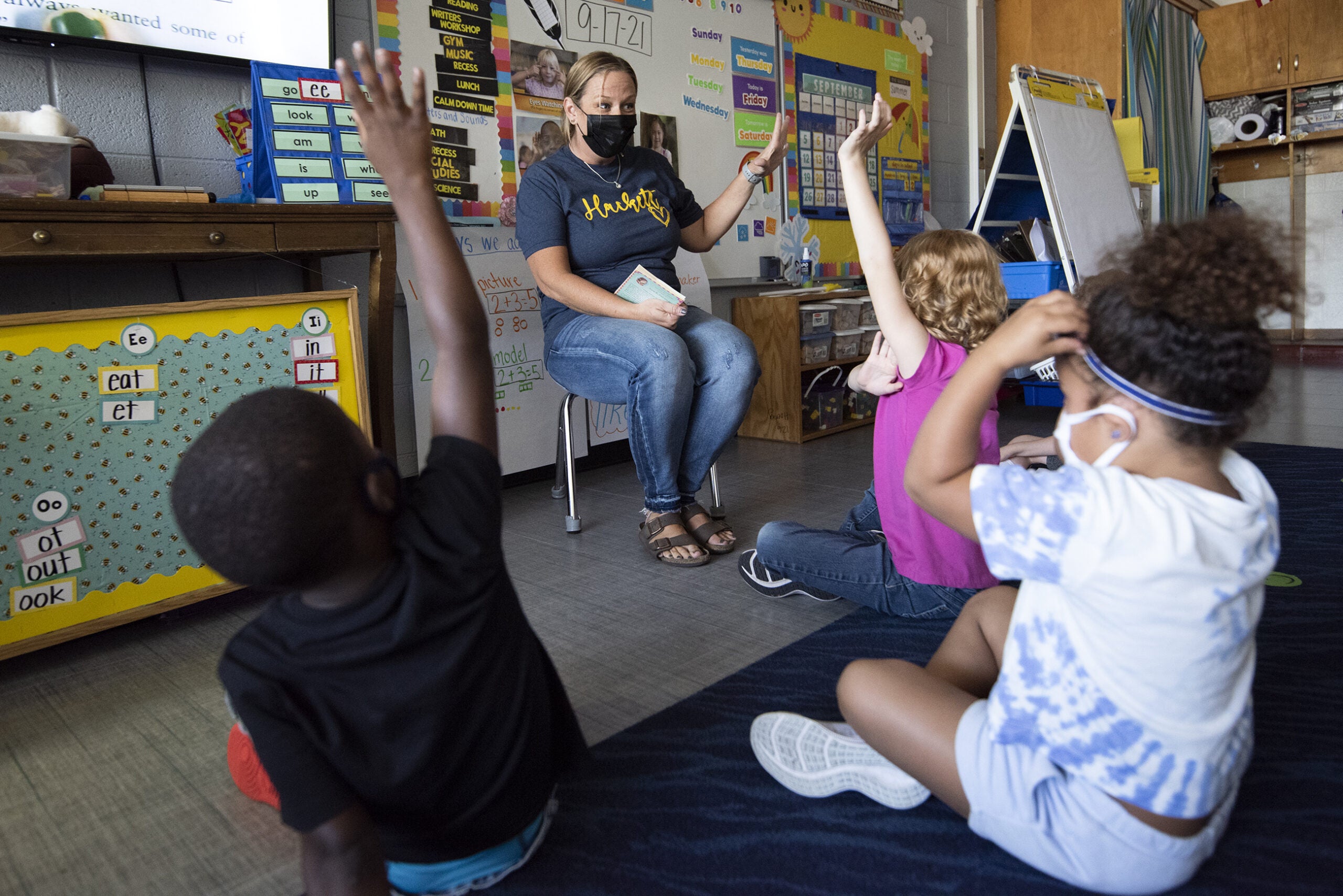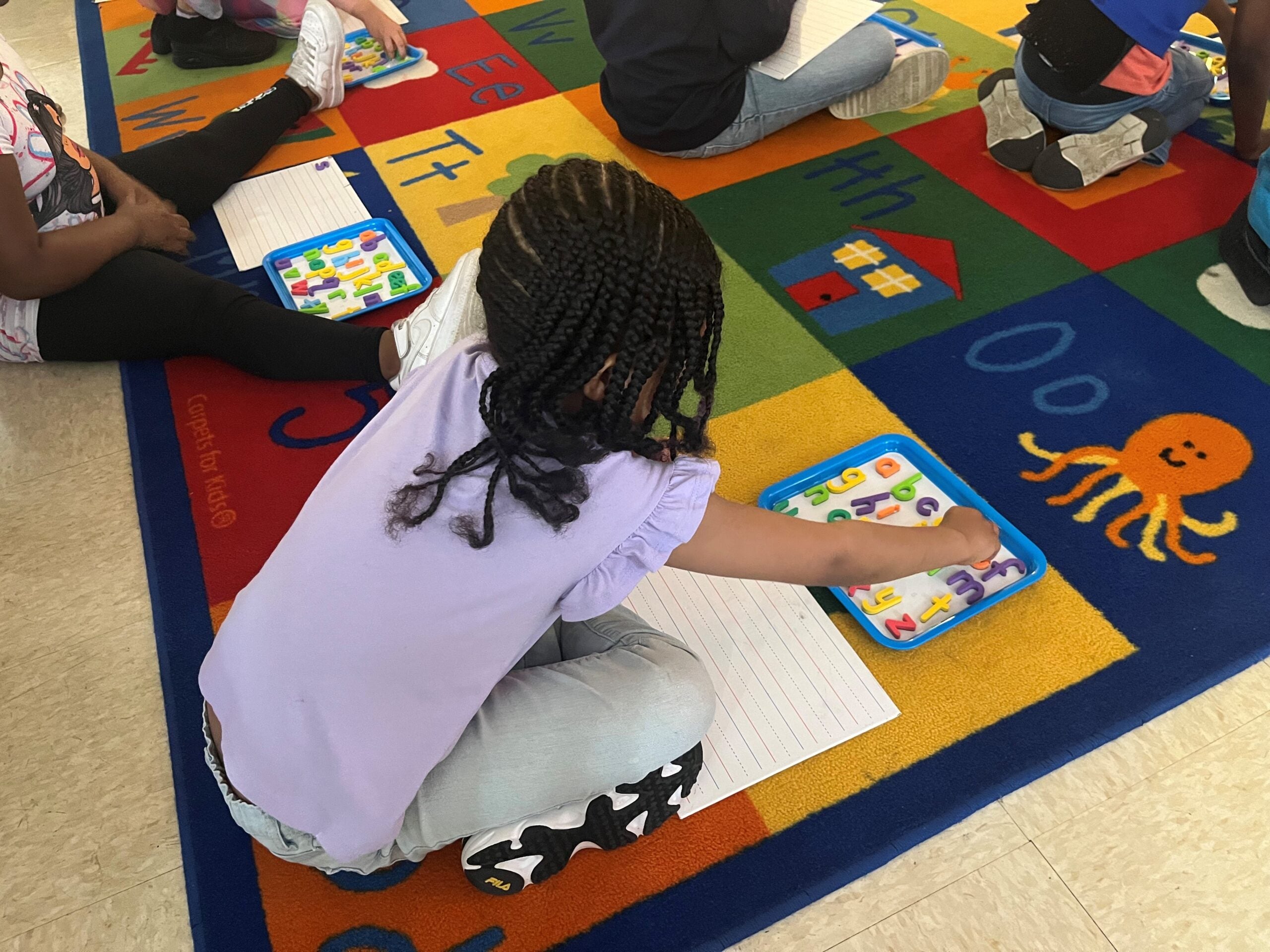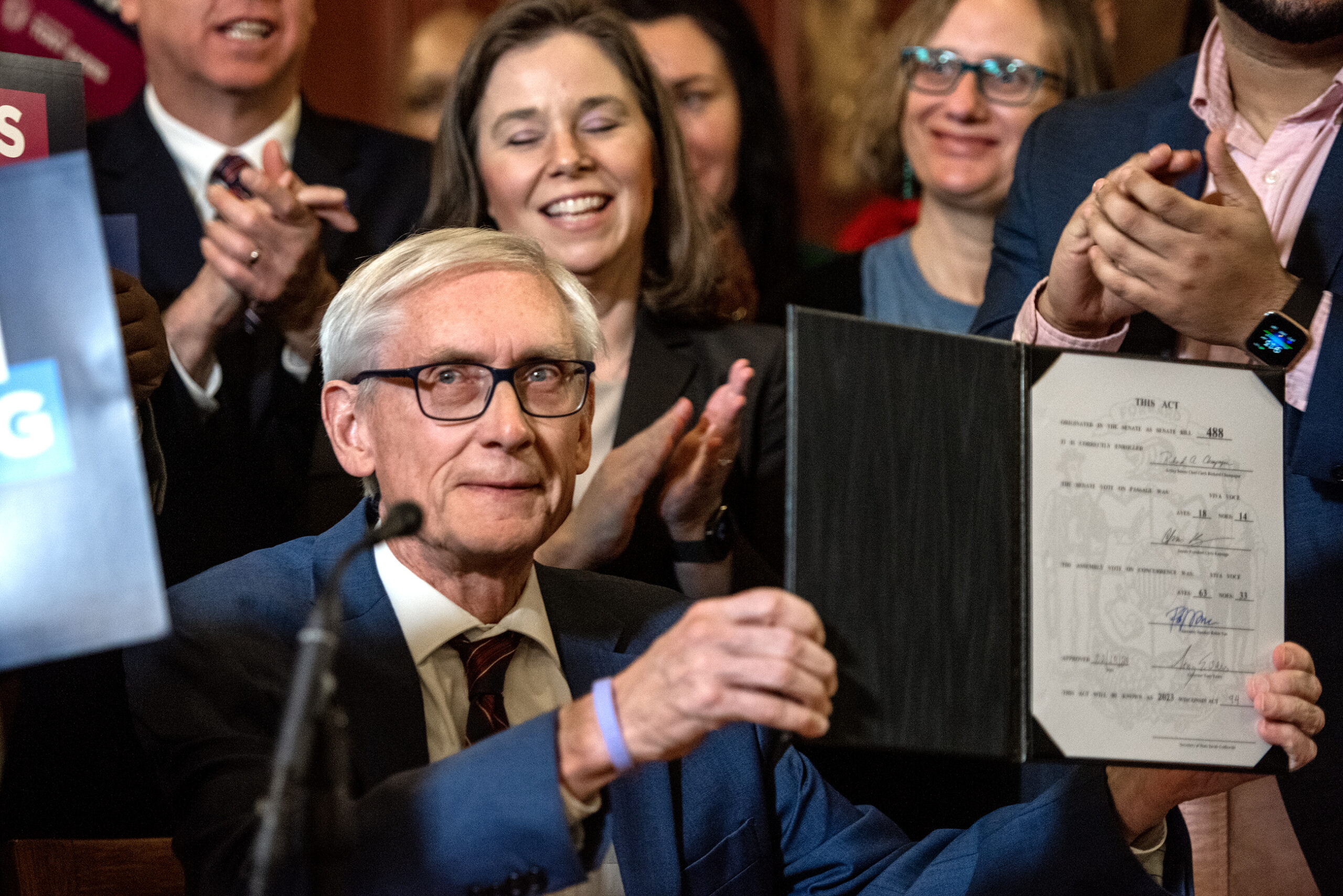Senate Republicans voted to override Democratic Gov. Tony Evers’ budget veto that increased funding to public school districts for the next 400 years.
Evers blasted the move, calling it “B.S, reckless and wrong.” But the Assembly likely won’t have the votes for the override to move it forward. To overcome the governor’s veto, both chambers need to act by a two-thirds majority.
The Senate voted 23-10 along party lines on the school funding measure Thursday.
News with a little more humanity
WPR’s “Wisconsin Today” newsletter keeps you connected to the state you love without feeling overwhelmed. No paywall. No agenda. No corporate filter.
The vote came after about an hour of debate on the Senate floor where Democrats called the moves immoral, and Republicans said education was adequately funded in the state budget.
Senate Majority Leader Devin LeMahieu, R-Oostburg, called Evers’ plan to give school districts the ability to collect an additional $325 per student annually for the next 402 years “ridiculous” and said the governor’s action “defies logic.”
“Four hundred years. A $750 million increase, every year, every budget for the next 400 years,” LeMahieu said. “Now I know if (President Joe) Biden continues to remain president $750 million is not going to mean much in the future because of the way inflation is out of control in this country, but $750 million is a huge property tax hit.”
Evers used his partial veto authority on the state budget in July, eliminating a $3.5 billion tax cut. He also, in a creative use of his power, sliced out a number and a hyphen from a sentence to get to the date 2425, in doing so locking in a $325 annual funding hike for each student in the state for 400 years.
Wisconsin’s public schools are funded primarily through a combination of local property taxes and state support in the form of general school aids. That means if school districts are given additional revenue limit authority, it’s funded by the state or by increasing the local tax levy, according to a January 2023 report by the Legislative Fiscal Bureau.
The state budget also included the largest financial expansion to private school choice in the program’s history. Taxpayer funding for kindergarten through eighth grade private choice schools increased from about $8,400 per student to $9,500 per student. Funding for private choice high schools increased $9,045 to $12,000 per student.
The Senate also voted to override Evers’ veto of Republicans’ $3.5 billion tax cut, which the governor said was too concentrated on the state’s wealthiest residents, and a provision that would have prohibited state agencies and municipalities from restricting the connection or reconnection of a utility service based on the type of energy provided.
State Sen. La Tonya Johnson, D-Milwaukee, said the vetoes are a reflection of the GOP’s morals and values.
“There is something seriously wrong with the Republicans if they are willing to give away billions of dollars in tax breaks to their wealthy donors and on the same day cut sustainable funding for our children’s schools,” Johnson said.
Wisconsin Public Radio, © Copyright 2026, Board of Regents of the University of Wisconsin System and Wisconsin Educational Communications Board.






